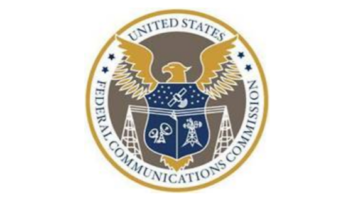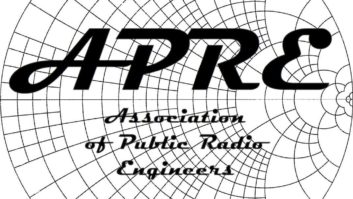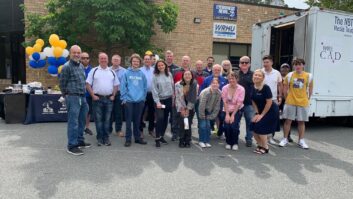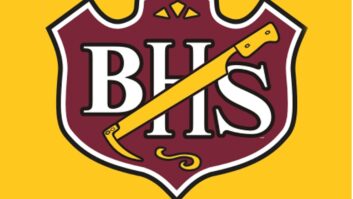WILMINGTON, Del. Radio broadcasters are preparing for a long legal battle over the automation technology that has become the backbone of many of their stations.

Lotus Communications DOE Lynden Williams says the company has been contacted by Mission Abstract Data about the automation patent. Mission Abstract Data LLC, doing business as DigiMedia, has filed a complaint in United States District Court for the District of Delaware alleging patent infringement by CBS Radio, Beasley Broadcasting, Cox Radio, Greater Media, Cumulus, Entercom and Townsquare Media. In all, more than 900 radio stations are involved.
Industry observers contend that automation systems were well established before the first of the patents was applied for in 1994 and issued in 1997; and at least two broadcasters named as defendants are denying the validity and basis of the claims.
“The plaintiff claims it holds two U.S. patents that relate generally to a method and system for operating radio stations wherein a digital database stores music that is programmed, played and broadcast by the radio stations,” Mission Abstract Data states in the lawsuit.
The company is asking for a jury trial to determine damages, plus interest, for infringement of the patents. The suit was filed on behalf of Mission Abstract Data by Hagens Berman Sobol Shapiro LLP. No trial date had been scheduled as of early May.
Several sources confirmed that some defendants and automation vendors held a conference call to review a possible defense strategy.
Some broadcasters meanwhile have been contacted by parties representing Mission Abstract Data asking them to sign and pay for licensing agreements.
Based on comments to Radio World, the patents were the topic of intense but quiet back-of-the-booth conversation among automation companies at the NAB Show in April. While several vendors there scorned the claims privately, their actions suggested that manufacturers and broadcasters consider it a serious legal challenge.
It is not clear exactly how much money is at stake but it is surely in the many millions of dollars. One broadcast group that was contacted about a licensing agreement has 27 stations and was asked to pay $600,000 for past usage. The case hinges on patents issued by the U.S. Patent and Trademark Office to Robert J. Goldman, one in 1997 and another in 1998, both titled “Selection and Retrieval of Music From a Digital Database.” It’s unclear if Goldman is still involved with the company or exactly who is leading its patent infringement claim efforts.

The case hinges on two patents issued by the U.S. Patent and Trademark Office to Robert J. Goldman, one in 1997 and another in 1998, both titled “Selection and Retrieval of Music From a Digital Database.” This diagram is from one of those patents.
Attempts by Radio World to reach Mission Abstract Data representatives for comment for this story were unsuccessful.
‘Wealth creation’
According to its website, Mission Abstract Data is a Delaware-based company with patented technologies used in the broadcast industry.
The company claims its technologies “have saved the radio industry many hundreds of millions of dollars in costs through the improvement of work flow, more efficient apportionment of human resources, reduction in shrinkage, shipping costs, acquisition of music and inventory tracking.”
If any broadcasters, however, had heard of the company before, none have said so.
On its website, www.missionabstractdata.com, Mission Abstract Data defended its actions and posted a blog following the case.
“Technology from the 1990s to today, such as the hard drive, computing power (both at very cost-effective prices due to the economies of scale of the PC industry), improvements in audio compression, plus the Internet has enabled a technology-led generation of wealth creation in the form of significant cost savings for the radio station owners,” it stated.
“Those owners pocketed that profit, resulting from reduced cost and increased operating efficiencies, in the past, today and for the foreseeable future. However, not all patent rights used were secured or paid for.”
The company insisted in its post that it “seeks only to license valid patent rights and is not seeking to collect value to which it is not entitled.”
‘Prior art’
However, a source familiar with the case said, “It is common knowledge that systems using hard-disk playback to air were sold and in use by some stations prior to the effective date of the patent in question.”
Cox Radio, in its response to the lawsuit, “denies each and every allegation of the complaint” filed by the plaintiff. Greater Media said in its court filing that the company “lacks knowledge or information sufficient to form a belief as to the truth of the allegations” outlined in the suit.
Radio Automation Licensing Agreement
Representatives of Mission Abstract Data have visited some radio stations asking them to sign a licensing agreement to use their patented radio automation system.
According to Mission Abstract Data’s website, the company set licensing fees based on market and group size, claiming that the costs represent a small percentage of money saved by groups and the industry by using its technology.
The licensing agreement outlines specific aspects of the arrangement, which includes directing payment to be deposited into an account at a Wells Fargo Bank branch in Wilmington, Del.
“The length of the agreement continues from the effective date until six years after the expiration of the last-to-expire licensed patent,” according to the letter.
Radio World’s efforts to reach the two representatives from Mission Abstract Data meeting with broadcasters, Rick Martin and Todd Schmidt, were unsuccessful.
On its website, Mission Abstract Data asks broadcasters to request a licensing consultation with the company. “Mission Abstract Data LLC’s patented technologies will continue to be a cornerstone around which radio evolves.
Please take a moment to learn about pricing options available for your group or station — you will find a contact form on the homepage,” it states.
“[We] deny that Plaintiff is entitled to any of the requested relief. Greater Media respectfully requests that this court enter judgment in its favor and against plaintiff on all claims set forth in the complaint.”
The broadcaster also filed a counterclaim and is asking the court to order Mission Abstract Data to pay its costs, expenses and reasonable attorney fees if it is successful defending itself. An attorney for Greater Media said the company would have no public comment on the case.
Beasley, Cumulus, CBS, Cox, Townsquare Media and Entercom also filed counterclaims against Mission Abstract Data, according to court documents. Four of the groups — Beasley, CBS, Cumulus and Greater Media — are represented by the same firms, Phillips, Goldman & Spence in Wilmington, Del., and Cahn & Samuels in Washington.
Contacted by Radio World for comment, representatives of Beasley Broadcasting, Cumulus and Townsquare Media acknowledged the suit but declined to discuss the litigation further.
Clear Channel, which was not named in the patent infringement suit, confirmed that its automation manufacturing arm RCS is discussing the matter with clients that may be affected by the lawsuit.
The absence of the country’s largest broadcaster from the case seems notable. Clear Channel said it has not reached any settlement agreement with Mission Abstract Data in regards to the automation system patent. It declined to discuss the case further.
The next step in the civil case likely will be setting a case schedule for the completion of discovery and motions for summary judgment, according to Bill Ragland, a patent attorney with Womble Carlyle Sandridge & Rice. He is not involved in the case.
“Discovery, including the production of relevant documents, responses to written questions and depositions will also begin.”
He said broadcasters also could ask the U.S. Patent and Trademark Office for an ex parte reexamination of the patents.
‘Not a valid suit’
Even though the suit names broadcasters and not suppliers, many major automation vendors scrambled to support their customers by trying to identify “prior art” evidence that they had offered this kind of technology earlier.
“Prior art” in patent law represents information that is available to the public before a given date and is relevant to a patent’s claim of originality. In most cases, a patent is not valid if an invention had been described in prior art, according to Ragland.
Mission Abstract acknowledged as much on its website in March: “It is in the interest of all parties to understand, as soon as is feasible, if there really is valid, documented prior art and to minimize the amount of money spent on legal bills by all parties. If the claims being asserted are proven to be invalid, due to prior art, from Scott Studios, ENCO or someone else, then there will be no licensing program and the litigation will be dropped.”
Not clear is whether manufacturers will have a legal responsibility to indemnify broadcast users if the patents are indeed upheld, said Ragland. “That would likely be determined by the specific warranties and contract rights set forth in agreements or sales documentation between the parties.”
But most automation vendors who spoke about the legal action seemed sure it would not stand.
“We believe there is significant art that would invalidate this claim,” said Don Backus, general manager and vice president of sales and marketing for ENCO. “ENCO is cooperating with our affected clients and other automation vendors.”
Mission Abstract’s Claim
What exactly did Mission Abstract Data patent? U.S. patent numbers 5,629,867 and 5,809,246 each are about six pages and include diagrams and descriptions of a music storage system on hard drive. The wording of the abstracts of the two patents varies slightly. The earlier patent includes wording of “a digital radio broadcast station which includes a single on-line digital database,” while the later version of the patent mentions “a common digital database.” The company believes the technology is being used by thousands of broadcasters.
The first of the patents was applied for in 1994 and granted in 1997. They are a technical portrait of many digital radio broadcast stations. The company lawsuit describes a broadcast industry shift to its technology.
“Prior to the invention set forth in DigiMedia’s patents, operation of a music-based radio station was a cumbersome and expensive process. In a typical prior art radio station environment, the disks to be played and broadcast were located and retrieved from a CD musical library. The disks then were loaded into a CD player. The technology covered by the claims of the DigiMedia patents was a revelation in the radio industry,” according to its suit.
In a March blog post, the company appeared to base its defense of the patents partly on whether automation systems of the early 1990s could store hundreds of songs rather than a limited number of short clips. It said the mere existence of music on hard drive prior to 1994 would not invalidate its claims because its patents specifically are for a system with hard drives containing at least several hundred songs.
“It was the determination of the Patent Office that no one had previously published materials that described a system in which at least several hundred songs were stored in a database resident on one or more computer hard drives in an array that could be played using software on a computer (no particular kind of software, no particular features for automation being required) over a radio broadcast,” it wrote.
It also said the Patent Office looked at 13 prior U.S. patents as well as several articles and press releases before issuing its approval.
Ray Miklius, vice president of studio systems for automation manufacturer Broadcast Electronics, said, “A large number of our clients are involved in the suit. We are currently pooling resources in order to prove that the patents in question are illegitimate. We think we have uncovered enough evidence already to disprove the patents. This is not a valid suit.
“We will do all we can to protect the interests of our clients against a well-funded and very experienced group. It is a very complicated affair.”
Ron Paley, a radio automation industry veteran, said he has evidence that will prove the technology described in Mission Abstract Data’s patents existed well before the first patent application was filed in 1994.
Paley said MediaTouch commissioned his former company, Oakwood Audio Labs Ltd., to develop a networked music system in 1991.
“By the spring of 1993 we had built and tested the first super duopoly music system and then installed it that summer for Okanagan Skeena Radio Group in British Columbia, Canada,” Paley said. The MediaDisk system contained 5,000 songs on twin redundant servers and serviced four networked radio stations, Paley said.
“The largest hard drive we could find at the time was 2 GB. We had 10 [hard drives] in each server for 20 GB storage. We used a Novell network with SFT3 for transparent redundancy,” Paley said.
“We used six-to-one compression and 75 percent of the files were mono for the AM stations. This was a very difficult thing to accomplish. And we were dealing with DOS. It wasn’t easy work. Windows was in its infancy and Novell was proven.”
Paley said what Mission Abstract Data describes in its patent is “basically a storage tank. They are describing exactly what we did — the concept of one, anyway, because I don’t think they ever built one.”
Paley said he and his brother Ted, also a former executive at Oakwood Audio Labs Ltd., possess prior art that includes full drawings, pictures and installation details of the Okanagan Skeena Radio Group installation and printed color brochures depicting the system.
“We built a second system that was on display in the MediaTouch booth at the spring NAB show in 1994. This was a fully functional system that was for sale and being installed.”
Dave Scott, founder of Scott Studios and an early entrant into radio automation, said, “Stations using a digital system to run a satellite or network format who do not have music on hard drive and do not access any centralized music via modem, WAN or Internet, probably are not violating the patent. However, if a station does play music from a hard drive, then there is a question whether the patent is valid.” But Scott declined to comment further, citing a confidentiality agreement with an automation vendor that retained his services as an expert witness in lawsuit proceedings.
‘Already out there’
Mission Abstract Data meanwhile was pursuing a second track to collect on its claims.
RW confirmed that at least some broadcasters have been contacted by parties representing Mission Abstract Data asking them to sign licensing agreements. A letter obtained by Radio World from one of those parties discussed pricing information (see sidebar).
Lindy Williams, director of engineering for Lotus Communications Corp., said his group was contacted.
“I’m probably the worst person they could deal with on this. In the fall of 1992 KWKW(AM) in Los Angeles was using two Audisks, with 2 GB SCSI drives. One carried all of the commercials, while the other Audisk held several hundred songs. We were on the air with it two years before (Mission Abstract Data) even applied for their patent.”
Williams is attempting to retrieve the expansion chassis that housed the six music drives from KWKW from a storage facility, which still would have the music files and likely a record date on it, he said.
“I find the granting of this patent insane. The research done to determine what was already out there in the field was abysmal,” according to Williams. He said Mission Abstract Data calculated that Lotus owed them “$600,000 for just the past usage of the technology based on the number of radio stations” in the group.
Lotus owns 27 radio stations in three western states, he said.
Patent attorney Ragland said broadcasters should be prepared for a lengthy court case.
“In the federal court in Delaware, the average time from the filing of a complaint through trial is just over two years.”
Comment on this or any story. E-mail [email protected] with “Letter to the Editor” in the subject field.












